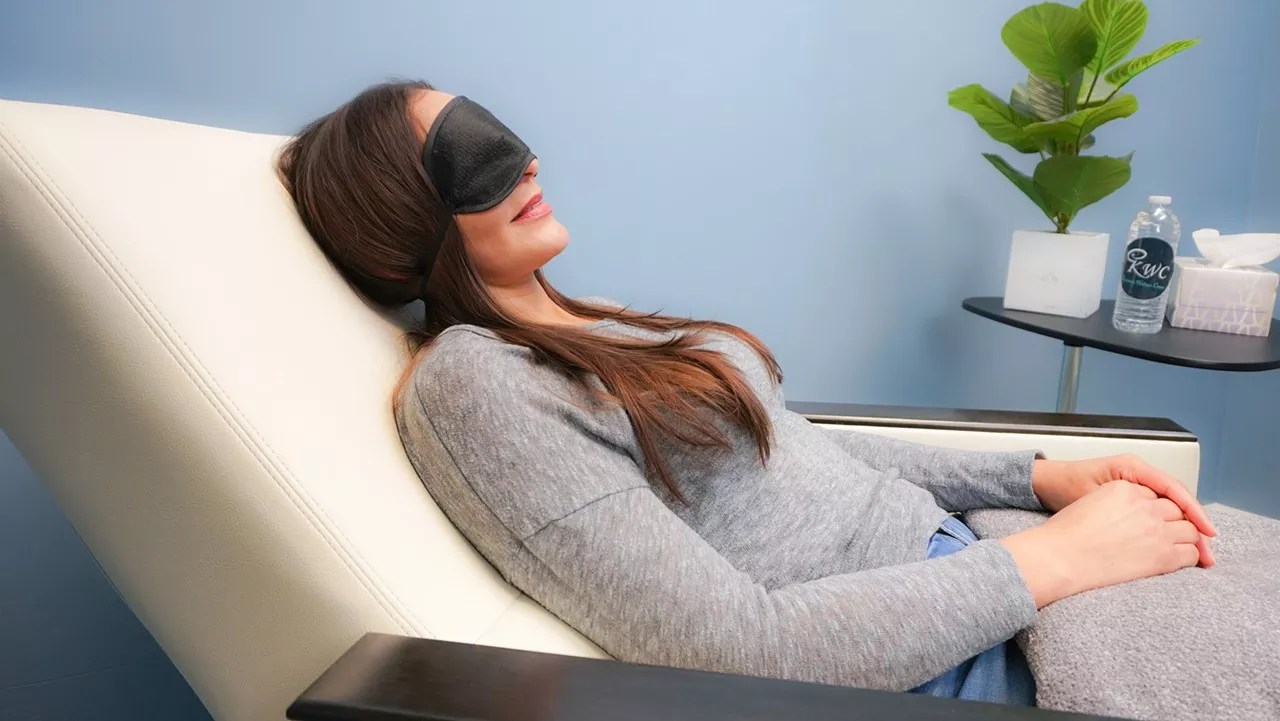
Delic

Audio By Carbonatix
It was only a matter of time, says Scott Raikkonen, before people started talking about marijuana as a gateway drug. Again.
This time, though, it’s a good thing. Because instead of scaredy-cat church ladies and propagandist filmmakers warning us that a little reefer will lead to heroin addiction and personal ruin, it’s doctors and pharmaceutical agents who are pointing to medical marijuana use as proof that dropping a little ketamine can also be good for you.
“People are drawing a line between legalized marijuana and the monitored use of ketamine,” says Raikkonen, a human resources rep for a ketamine wellness chain called Delic. “Not because they’re similar drugs, but because marijuana is being seen as medicine by a lot more people, instead of something a bunch of hippies are playing around with. Now we have to make that idea work for ketamine, which has had a bad rap for a long time.”
Ketamine, a synthetic compound used as an anesthetic and analgesic, got that bad rap after it was popularized as a hallucinogenic street drug in the middle of the last century. Legalized in 1999 under the Controlled Substances Act, ketamine is gaining popularity as a treatment for severe depression, anxiety, post-traumatic stress disorder, and chronic pain.
In Arizona, out-of-pocket costs for those treatments are covered by Delic’s new Hero Program, earmarked for military vets and first-responders. But Delic-which became the country’s biggest ketamine clinic in September after gobbling up the Ketamine Wellness Centers chain-still has its work cut out for it. Even with medical pot’s improved status, Raikkonen says, the company has to convince both military vets and civilians that it’s okay to enjoy its medical benefits.
“We’re still struggling with people saying, ‘Oh, no, ketamine is an animal tranquilizer,'” Raikkonen says. “And we’re saying, ‘We are not putting you in a room and shooting you up with a whole bunch of this stuff and letting you trip for hours.”
Instead, patients are micro-dosed with ketamine in the company of a clinical staff of registered nurses with paramedic training; monitored by nurse practitioners and overseen by board-certified doctors of anesthesiology.

This woman is not dropping acid at one of Delic’s local ketamine clinics.
Delic
With medical marijuana treatments, Raikkonen points out, patients are left on their own to manage dosage and applications.
“Ketamine is a different setup. Someone is by your side the entire time, and if you feel you’re getting a little trippy or out of control, they’ll talk you through that. You won’t be tripping around the room,” he says.
Raikkonen knows ketamine works. He returned from a difficult Army deployment about a decade ago with some emotional issues. Three different prescription drug treatments failed to help him.
“The VA was giving me things that were making me sit on the couch and drool on myself,” he recalls. “Things like Prozac and stuff, and none of it worked.”
A buddy turned him on to monitored, medical-use ketamine, which did the trick; Raikkonen’s anxiety decreased and the destructive habits he’d acquired faded away. His advocacy for the drug led to his work with Delic and the Hero Program.
Raikkonen likes to reassure people that medical ketamine treatments won’t lead to a dependency on recreational psychedelics.
“I’m not a doctor or researcher, so I can’t really say for sure,” he says. “But I highly doubt it, because of the clinical approach we take. There’s no atmosphere of partying or getting high, there’s just board-certified medical professionals in a clinical setting.”
Raikkonen thinks it will be important, before medical ketamine treatments can really catch on, to stop blurring the line between dropping acid and getting micro-dosed with ketamine. A first step, he believes, would be to change the language.
“When you call ketamine by the street names it had when it was illegal, like ‘Vitamin K,’ then you’re confusing people,” he says. “Delic is being as up front and honest as we can about the correct use of ketamine.”
It’s also important to stress to the general public that, unlike medical marijuana, there’s no legal recreational use of ketamine in the works.
“There won’t be that side of it, where you can buy a candy or whatever that has this drug in it. This is about medical treatment, period,” he said.
Raikkonen has heard stories of ketamine clinics getting shut down for misuse of the drug, and says he hopes that trend continues.
“They should never have been in business to begin with,” he said. “We’re here to show people that ketamine use is about science, not going on an acid trip. We want to help you get well, not get you high.”